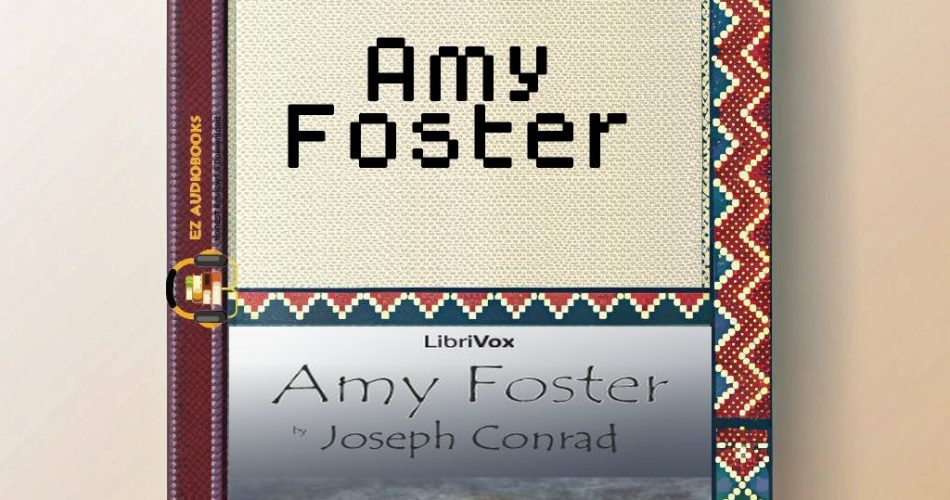Audiobook Sample
Listen to the sample to experience the story.
Please wait while we verify your browser...
- Title: Amy Foster
- Author: Joseph Conrad
- Narrator: Bellona Times
- Length: 01:22:00
- Version: Abridged
- Release Date: 01/01/2011
- Publisher: LibriVox
- Genre: Romance, Historical Romance
- ISBN13: SABFAB9780393
The first time I heard Bellona Times’ narration of “Amy Foster”, I was sitting in a dimly lit hostel common room in Kraków, rain tapping against centuries-old windows. That setting – halfway between Conrad’s Polish roots and his adopted English home – made the story’s themes of displacement resonate with visceral power. This LibriVox recording, available as a free audiobook, offers one of literature’s most poignant explorations of what happens when compassion collides with cultural barriers.
Conrad’s 1901 novella unfolds like a folk tale told by firelight, chronicling the tragic fate of Yanko Goorall, an Eastern European shipwreck survivor washed ashore in rural Kent. The villagers’ xenophobia manifests in ways that still feel painfully familiar today – their suspicion of foreign speech patterns reminded me of an elderly shopkeeper in rural Portugal who once refused to serve me until I perfected the local greeting. Bellona Times captures this atmosphere beautifully, her voice oscillating between the measured tones of Dr. Kennedy’s framing narrative and the villagers’ thick Kentish accents.
What makes this audiobook experience particularly compelling is how Times handles the story’s emotional cadence. In the scene where simple-minded Amy Foster first brings bread to the starving Yanko, the narrator’s voice takes on a tentative warmth that mirrors Amy’s hesitant kindness. I found myself transported to those Oaxacan evenings where my host’s grandmother would tell stories – the same careful pacing, the same understanding that silence between words can carry as much meaning as the words themselves.
The production quality, while not studio-perfect (this is a volunteer LibriVox recording after all), adds to the story’s authenticity. Occasional background noises and the slight echo of a home recording space unintentionally reinforce the text’s themes of imperfection in human connection. When Yanko struggles to communicate in broken English, Times’ pronunciation choices make his alienation audible – she renders his speech with just enough clarity to understand his meaning, but enough awkwardness to remind us why villagers found him unsettling.
Conrad’s exploration of limited empathy hits harder in audio format. There’s a particular moment when Amy, now married to Yanko, becomes frightened by her husband’s native-language lullabies to their child. Times delivers this scene with devastating simplicity, letting Conrad’s words do the work: “‘He was singing to the child, and the sound was strange enough to her ears.'” That line took me back to watching a Syrian refugee friend comfort his daughter with Arabic nursery rhymes in a Berlin refugee center – witnessing how cultural dislocation reverberates through generations.
While categorized as historical romance, this story subverts genre expectations. The relationship between Amy and Yanko contains little traditional romance, but rather examines how love manifests across cultural divides. Times understands this distinction, never sentimentalizing their connection. Her narration highlights instead the quiet tragedy in Amy’s ultimate failure to understand her husband’s soul – a failure foreshadowed in early scenes where she views his foreignness as merely “‘queer'” rather than profoundly different.
For listeners seeking comparative works, this pairs well with Jhumpa Lahiri’s “Interpreter of Maladies” or Chimamanda Ngozi Adichie’s “Americanah” – all stories where language barriers become metaphors for deeper disconnection. Conrad’s genius lies in making Yanko’s specific 19th-century plight feel universal. I’ve witnessed modern versions of this story everywhere from Australian outback towns suspicious of Asian fishermen to Parisian arrondissements where North African immigrants navigate daily microaggressions.
The audiobook’s greatest strength is how it preserves Conrad’s nuanced symbolism. When Times describes the “‘cold sea-fog'” enveloping Yanko’s doomed ship, you can almost feel the moisture clinging to your skin – a sensory experience enhanced by audio. Her delivery makes tangible the story’s central metaphor: how fog represents both the natural forces separating cultures and the willful obscurity of human understanding.
Some listeners might wish for more professional production values, but I found the raw quality appropriate for this particular text. Much like Yanko himself, this recording is imperfect yet profoundly human. The occasional background noise – a chair creak, a distant dog bark – only deepened my immersion, reminding me that stories about outsiders deserve to exist outside polished commercial spaces.
May your literary travels always lead you to deeper understanding, – Marcus
Marcus Rivera

